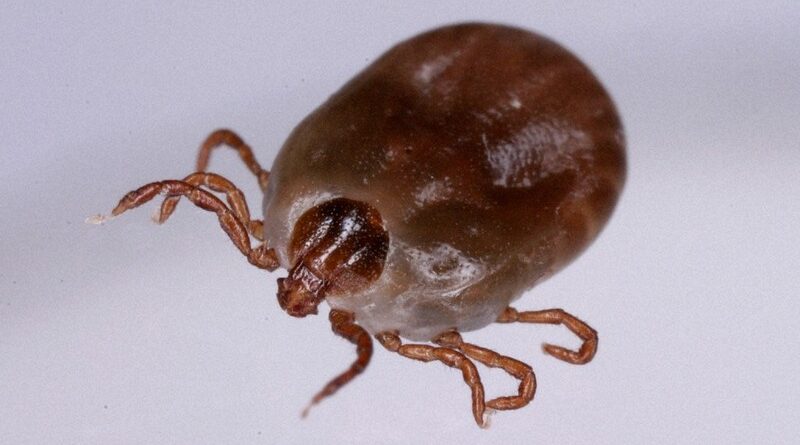Fatal Encounter: Fukuoka Prefecture Mourns Loss of Woman to Tick-Borne Disease
In a devastating turn of events, Fukuoka Prefecture is grappling with the tragic death of a local woman who succumbed to a tick-borne disease, casting a spotlight on the silent dangers these minuscule creatures can pose to our health.
The victim, whose identity remains undisclosed to protect her family’s privacy, was a vibrant 37-year-old resident of Fukuoka Prefecture. She was known in her community for her love of nature and her frequent outdoor adventures. Tragically, it was one of these outdoor excursions that led to her contraction of a tick-borne illness, which ultimately proved fatal.
Tick-borne diseases encompass a range of ailments transmitted to humans through the bite of infected ticks. In Japan, the most common tick-borne diseases include Lyme disease and severe fever with thrombocytopenia syndrome (SFTS), a viral infection known for its severe complications.
While the exact disease that claimed this woman’s life has not been disclosed, the incident has triggered authorities to issue urgent advisories regarding the risks of tick-borne illnesses, particularly during the warmer seasons when ticks are most active.
Ticks, often no larger than a poppy seed, are arachnids that feed on the blood of animals, including humans. During this feeding process, they can transmit a variety of pathogens, including bacteria, viruses, and parasites. Symptoms of tick-borne illnesses can range from mild flu-like symptoms to severe neurological complications.
To safeguard against tick-borne diseases, experts recommend the following precautions when venturing into tick-prone areas:
- Protective Clothing: Cover up as much skin as possible. Opt for long-sleeved shirts, pants, and closed-toe shoes to minimize skin exposure.
- Insect Repellent: Apply insect repellent containing DEET or picaridin to exposed skin and clothing. This acts as a deterrent to ticks seeking a meal.
- Regular Tick Checks: After any outdoor activity, carefully inspect your body and clothing for ticks. Pay extra attention to concealed and warm areas like the armpits, groin, and scalp.
- Trail Safety: Stick to well-marked trails and avoid walking through tall grasses and dense vegetation, where ticks often linger.
- Gear Treatment: Treat your outdoor gear and clothing with permethrin, a repellent that can be sprayed or applied to deter ticks.
- Pet Vigilance: Pets can carry ticks into your home. Regularly check your pets for ticks, and consider using tick prevention products on them.
- Proper Tick Removal: If you find a tick, use fine-tipped tweezers to grasp it as close to the skin’s surface as possible. Gently pull upward with even pressure to remove the tick. Afterwards, clean the bite area and your hands thoroughly with rubbing alcohol or soap and water.
Health authorities in Fukuoka Prefecture are diligently investigating the circumstances surrounding the woman’s untimely death. Concurrently, they are striving to raise public awareness about tick-borne diseases, urging residents to remain vigilant while enjoying the outdoors and to promptly seek medical attention if they experience any symptoms that may suggest a tick-borne illness.
The sorrowful passing of this Fukuoka Prefecture resident serves as a poignant reminder that even in the midst of nature’s beauty, hidden threats exist. Remaining informed and adopting preventive measures can significantly reduce the risk of tick-borne diseases, ensuring that other families are spared the anguish of such a devastating loss in the future.


Trotz Impfung: Warum gerade mehr Menschen an Corona sterben als letztes.